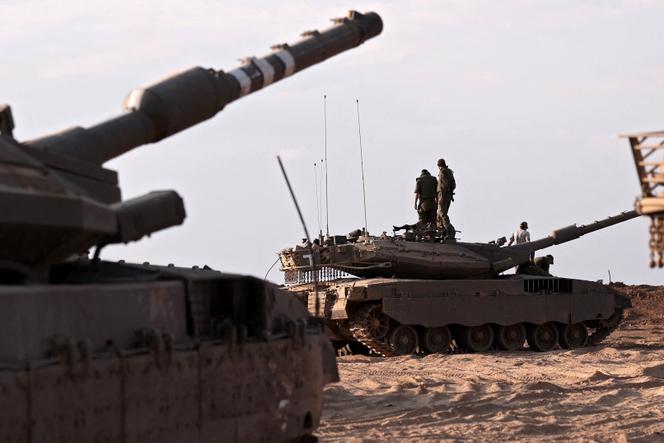


Israel pummelled northern Gaza with fresh air strikes on Saturday, October 14, one week on from the deadliest attack in its history, as it urged Palestinians to flee the area before an expected ground offensive against Hamas commanders. Some 1.1 million people – nearly half the population of 2.4 million – live in the north of Gaza, and aid agencies have said forcing them to move is an impossibility as the war rages.
There has been no let-up in Israel's response to the Islamist fighters' dawn raid, which saw them break through the heavily fortified border and gun down, stab and burn to death more than 1,300 people.
On the Gazan side, health officials said more than 2,200 people had been killed. As on the Israeli side, most of them were civilians. But with food, water, fuel and medical supplies running low because of an Israeli blockade, aid agencies are warning of an impending humanitarian crisis.
Agence France-Presse (AFP) reporters near the southern Israeli city of Sderot saw troops fire at the densely populated enclave, sending huge plumes of black smoke into the sky.
Israeli Prime Minister Benjamin Netanyahu, wearing a flak jacket, meanwhile visited troops on the border frontline, raising expectations of an imminent invasion. "Are you ready for what is coming? More is coming," he is heard telling several soldiers on a video released by his office. His visit near the Gaza border came as the Israeli military announced it is prepared for a "coordinated" air, ground and naval offensive in the Gaza Strip.
On the diplomatic front, Saudi Arabia pressed for an "immediate ceasefire", while the United States called on China to use its regional influence to push for calm.
Israel, which has likened last week's attacks to those on September 11, 2001, in the United States, has fired thousands of missiles at northern Gaza. One air strike killed Ali Qadi, described as "a company commander of the Hamas 'Nukhba' commando force" involved in the unprecedented attack, the army said.
"Localised" raids have also taken place, as Israeli troops encircle the Gaza Strip, said army spokesperson Jonathan Conricus. "We will likely evolve into additional significant combat operations," he added. "When we do so, remember how this started... All of this is Hamas-made."
Exiled Hamas chief Ismail Haniyeh accused Israel on Saturday of committing "war crimes" in Gaza and blocking the supply of much-needed aid. In a letter to United Nations Secretary-General Antonio Guterres, posted on the militant group's website, he called Israel's cutting off of electricity, water and fuel supplies "barbaric." But he ruled out any "displacement" of Gazans, including to Egypt.
Israel has vowed to destroy Hamas, which several Western governments, including the United States. have proscribed as a terrorist organization, and likened to the Islamic State group. But it maintains that ordinary Palestinians are not their target.
Israeli military spokesperson Richard Hecht urged civilians in northern Gaza not to delay in getting out, with a "window" for safe passage between 10:00 am and 4:00 pm. He did not say how many days the window would remain open.
Gazans, who cannot leave the enclave as it is blockaded by both Israel and Egypt, have packed what belongings they can into bags and suitcases, to trudge through the rubble-strewn streets.
International aid agencies, including the UN and Red Cross, plus several foreign diplomats have voiced concern about the feasibility of the evacuation plan. "We fear an unprecedented humanitarian catastrophe," said Ivan Karakashian, of the Norwegian Refugee Council.
